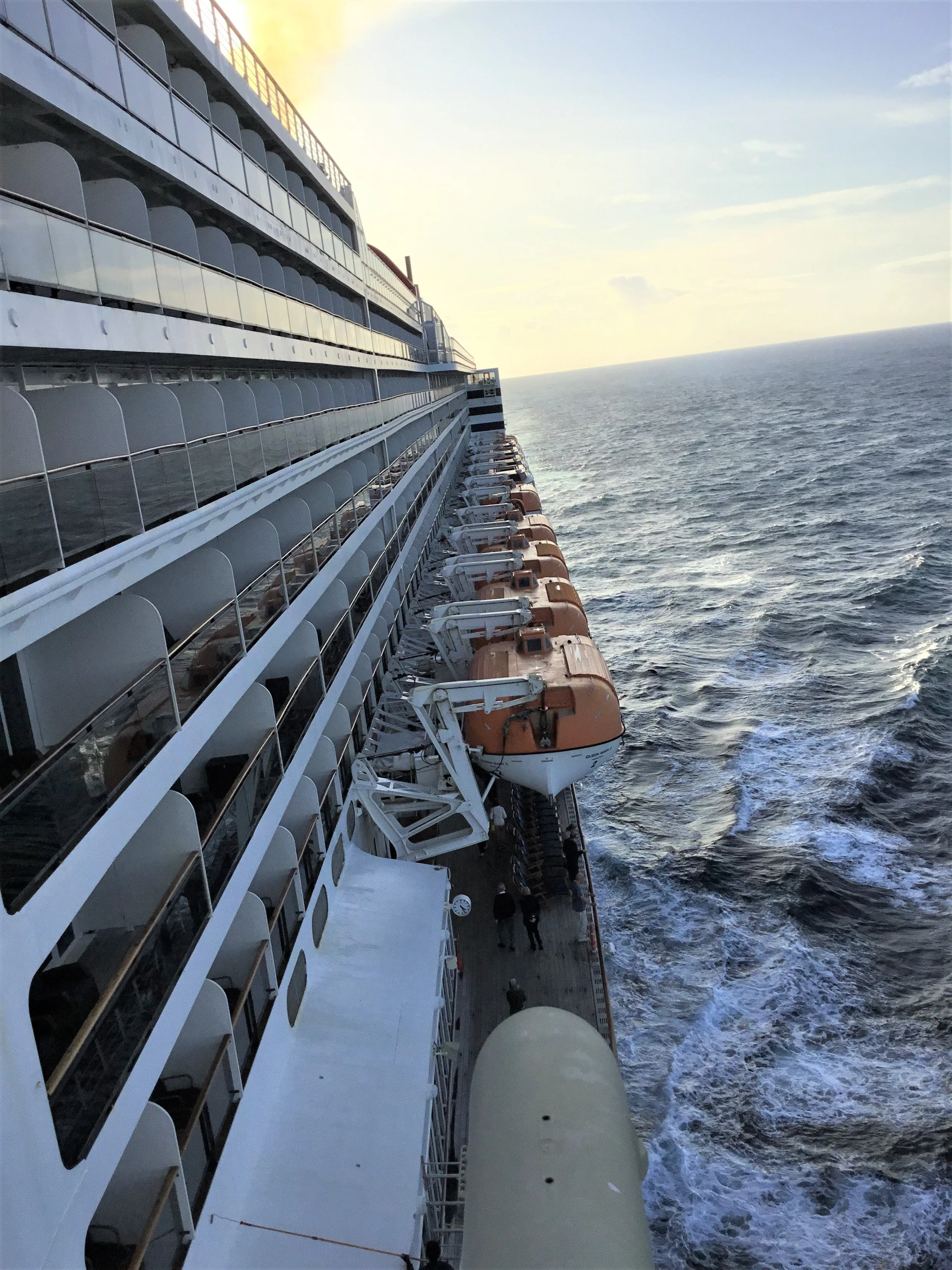Jonathan C. Lewis
Author and Artist
That Sinking Feeling
A fictional travelogue; four minutes to read.
The 3500-mile transatlantic crossing aboard the Queen Mary from New York City to South Hampton, England takes seven days. This is day four.
I’m happy as a barnacle on boat at my regular luncheon spot, the ship’s Golden Lion Pub. British-styled pub food—a curled, meaty, reddish-brown sausage with creamy mash and a pint of dark ale on tap—teases my destination, London.
The Queen Mary departed rudely from New York’s Brooklyn docks. Clanky, metallic gangways jutted out over the murky water like medieval flying buttresses. Weathered piers and pilings, barnacled and battered. Stacked shipping containers back from braving thousands of nautical miles. Husky tugboats belched diesel fumes.
Blaring loudspeakers bossed me into one waiting area, then another, then told me to wait. Heaps of luggage shuttled every which way. Futilely, hopelessly, stupidly, I tried to spot my suitcase.
Clearing NY harbor, the gentle sway of the ship is a homecoming of sorts. Most people have ancestral roots. I have ancestral seaweed. My namesake is Noah, a fellow who built and skipped his own seafaring vessel.
Growing up, every weekend, from early daylight to dusk, my dad and I navigated a 35-foot wood-hulled, white and mahogany cabin cruiser into the marinas, harbors, estuaries and shipyards of San Francisco Bay. I took a teenager’s pride in skippering our small craft in choppy weather, reading a nautical chart and piloting in and out of tight berths.
I have treaded water in the warm Amazon River, surfed in the chilly Pacific Ocean, island hopped on a tramp steamer in the Aegean Sea, at the tip of Africa watched the Indian and Atlantic Oceans kiss with stormy passion and lazed in a hammock overlooking Pavon Bay in Costa Rica.
Seen from the lighthouse of my mind, humanity is a series of tide pools connected in their elemental wetness but each with a special fascination. Each refreshed by ocean waters that are connected to all the waters of the world. Complicated, yet simple. Or maybe simple, yet complicated.
Water is life. After three to four days without water, I will die, burning up like a drop of water on a hot skillet. Death by dehydration is the slow death I most fear. The final ebbtide.
In the afternoons, I drydock myself in the ship’s 10,000-volume, paneled library. I sink into a leather chair to scan the oncoming waves. I doze off, an over-sized book on naval history collapsed against my chest. Reading at sea is pacifying, an oceanic restorative.
In the mornings, I circumnavigate the ship’s wood-planked deck. I quick-walk under lifeboats and around cushioned lounge chairs. My exercise progresses along the ship’s sheltered leeside, cluttered with other passengers, then weaves into the windward sea air, gusty and fierce, where only the hardy choose to recline.
Standing astern, watching the waves, the salted air brushes my lips. The big and little uncertainties of my life sink into the ship’s foamy wake.
Just a wafer-thin horizon separates two infinities—a light, translucent sky and the slightly darker ocean. In the middle of the Atlantic, all points on the compass look the same. No latitude, no longitude. No sense of place or position.
Like a fevered lover, my body arches toward the windy ocean breezes.


